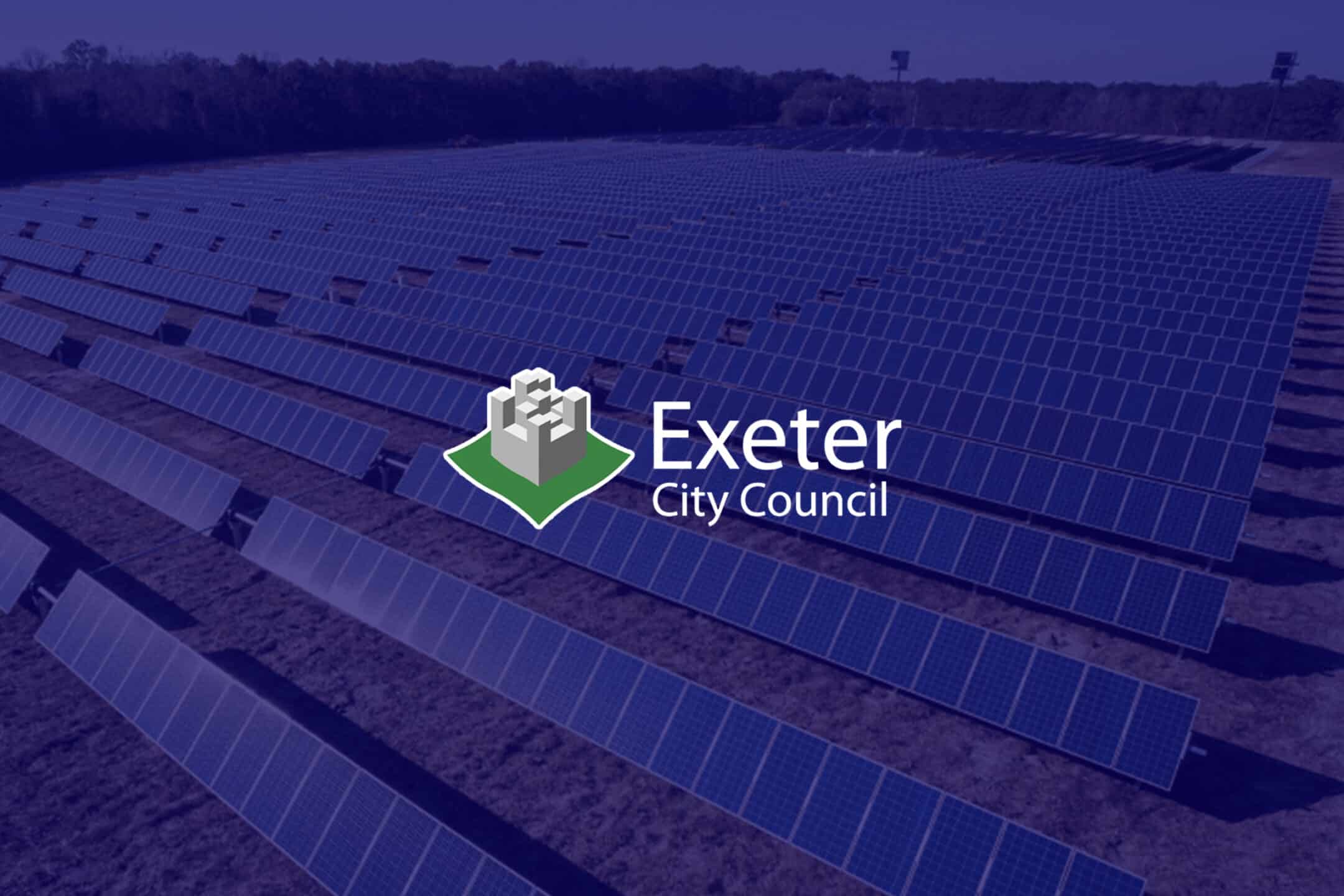Exeter has an ambitious net zero goal: to reach carbon neutrality by 2030. In line with this commitment, Exeter City Council was looking to reduce its carbon footprint and strengthen its energy resilience, making the most of the solar generation assets it owns.
In particular, the Council wanted to power the operations of its large recycling centre with 100% renewable electricity. The Council wanted to use solar power from its own assets. The priority was to electrify its waste management vehicle fleet and ensure the energy demand needed to charge them could be supported. Additionally, the Council wanted to further reduce carbon emissions and associated pollution from diesel vehicles in all sites.
The challenge: optimising solar generation with BESS
The Council developed and operates the following PV assets across three sites:
- Exton Road Depot – 1.2MW of solar farm development and private wire solution as part of the project
- Livestock Centre – with 1.5MWp of rooftop-installed solar PV – existing PV system
- John Lewis Car Park – with 134 kWp – existing PV system
The Council’s goal was to optimise the use of solar energy from these sites through battery storage and an energy management system (EMS). For this project, the Council received funding from the European Regional Development Fund. After a competitive public tender, Absolute Solar and Wind was appointed as the prime contractor. Wattstor took the role of the technology provider.
Goals:
- Overcome grid constraints and provide enough power to support the HGV charging infrastructure required to support the electric refuse collection vehicles (eRCVs) operating from the Depot site.
- Power the operations of the Exeter City Council’s Operations Depot, offices and MRF (Materials Recovery Facility) with renewable energy, generated locally and delivered via private wire from the solar farm
- Save money and increase energy resilience
- Support an accelerated net zero agenda to reach carbon neutrality by 2030
Our approach for Exeter City Council sustainability: a bespoke battery solution
At Wattstor, we knew that to make the most of its solar assets, Exeter City Council needed bespoke battery solutions that adapted themselves to the existing solar PV and available space, as well as to the Council’s end goals.
During the design and contracts phase Wattstor supplied the following:
- Exton Road Depot – 1MW/2MW BESS, located across the river from the solar carport which powers it. Connected via a private wire and Wattstor EMSLivestock Centre – 264kW/324kWh BESS and EMS
- John Lewis Car Park – 100kW/200kWh BESS and EMS with a compact design, ideal for the tighter available space
To manage the solar and battery systems efficiently and cost-effectively, we also implemented our powerful energy management system (EMS), Podium.
Podium automatically optimizes electricity generation, storage, use, and export across the three sites. It takes into account the Council’s energy needs and the conditions of the wholesale electricity market. This system helps the Council maximize its solar assets by managing a load of 1.6MW AC and DC EV chargers. It shifts load as needed and minimizes non-commodity charges.
Process:
- Bespoke battery design and installation across three sites
- Implementation of Podium EMS
- Consultancy and support in coordinating the different phases of the project
Results: cost savings, CO2 reduction and increased resilience
“Thanks to the implementation of solar, battery storage, and our EMS, we are now powering our operations depot, EV charging infrastructure, MRF and offices with 100% renewable, locally-generated, and fully-owned electricity. This has allowed the Council to convert three of our eight waste management lorries to electric, saving 35,000 litres of diesel and reducing carbon emissions by 103 tonnes each year. This has been a game-changer for us!”
As a result, the project demonstrates the potential of emerging technology, including battery storage, to facilitate electrification in a range of contexts – such as the implementation of a novel fleet of eRCVs.
Results:
- EV charging available for all of the Council’s fleet, including three eRCVs and trial vehicles, as well as electric vans.
- Recycling operations powered by renewable energy, generated locally
- Three out of eight waste management lorries are now EVs, saving 35,000 litres of diesel and 103 tonnes of CO2 a year
- -£250,000 a year in revenue costs
- Increased energy resilience
To learn more about how Wattstor can help you cut energy costs, boost your energy resilience and accelerate your transition to net zero, download our comprehensive guide to onsite renewable generation in 5 steps.
Up next...
Helping Northumberland County Council Reach Net Zero
Contact us
If your commercial energy bills are too high but you have plenty of roof space, we could help you cut costs and carbon. Tell us more below
Contact us
If your commercial energy bills are too high but you have plenty of roof space, we could help you cut costs and carbon. Tell us more below
- +44 (0) 20 3868 5555
- [email protected]
- Wattstor Ltd, 21 Ironmonger Lane, London EC2V 8EY


